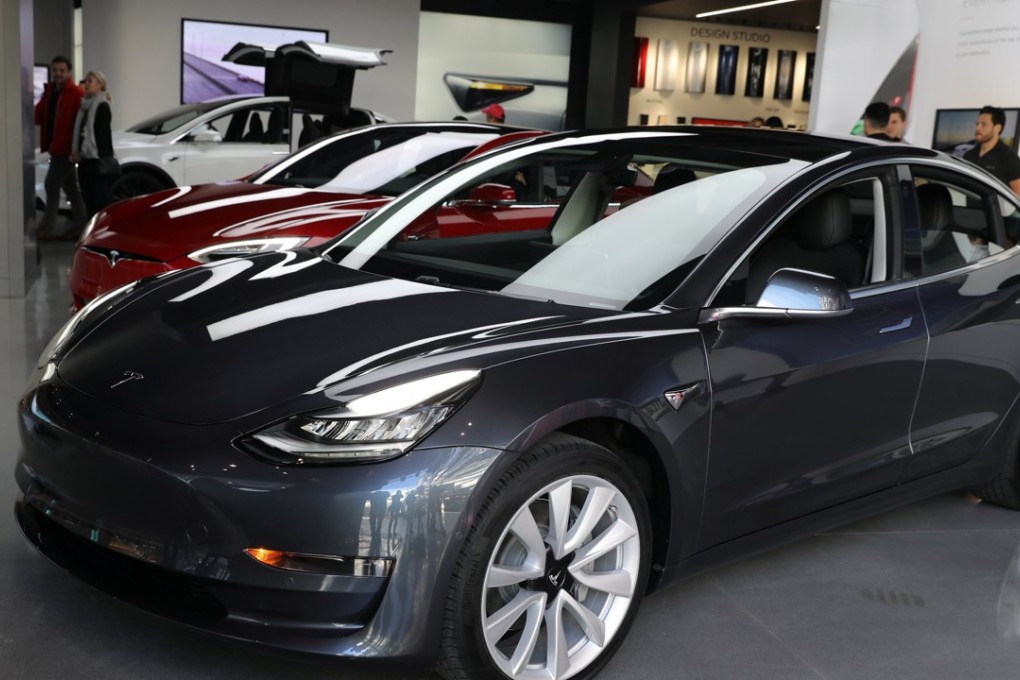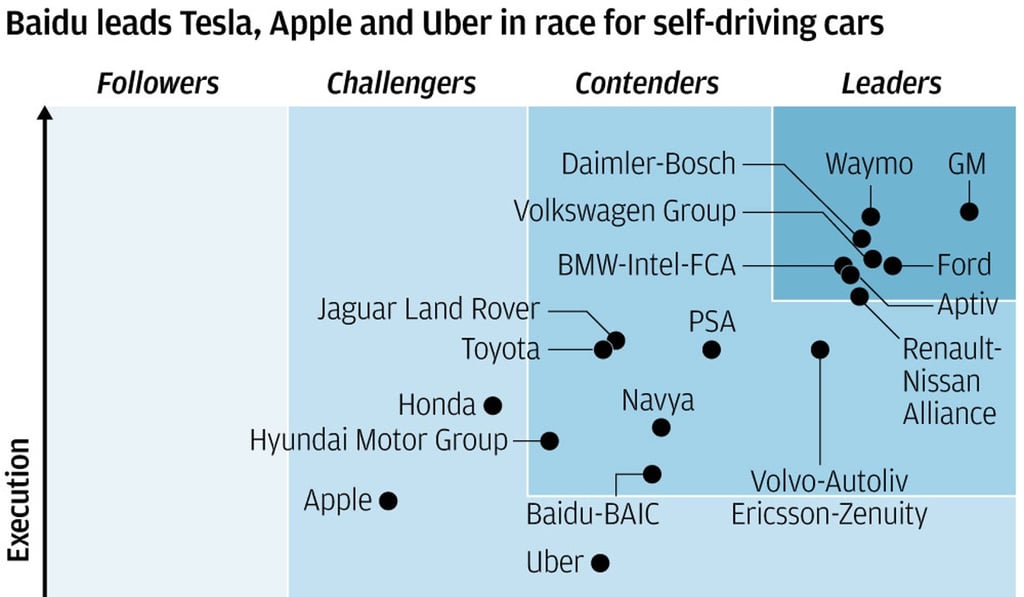Baidu leads Tesla, Uber and Apple in developing self-driving cars
A study by Navigant Research puts Apple and Tesla at the bottom when it comes to autonomous driving leadership, while traditional automakers rank at the top.

Baidu, which bills itself as “China’s Google”, has leapfrogged Tesla, Uber and Apple in the global race to build self-driving cars, according to a study.
The Beijing-based company, which has invested heavily in developing artificial intelligence and applications for autonomous driving, outranks the US trio in a study conducted by Navigant Research, which recently released its 2018 leader board report on an automated driving vehicles.
In the annual report, the US-based research company ranked 19 companies involved in developing self-driving cars, scoring them on 10 criteria, from the company’s technology, vision, to its strategy to commercialise products and their quality. Based on the score, companies are divided into four categories.
Baidu was rated among “contenders” along with companies such as Toyota, Jaguar Land Rover and Hyundai Motor. The Chinese company had moved up from the “challengers” section, leaving Tesla, Uber and Apple to the lowest-ranked category. The traditional automotive giants of General Motors, Volkswagen and Ford dominated the top tier, together with Google’s Waymo self-driving unit.

As part of China’s hand picked champions for artificial intelligence, Baidu has been charged to develop autonomous driving. At the CES technology show in Las Vegas earlier this month, Baidu chief operating officer Lu Qi said that China is closing the gap with the US rapidly in AI, thanks to strong government support and the country’s huge population size, which are key ingredients in promoting the development of the technology.